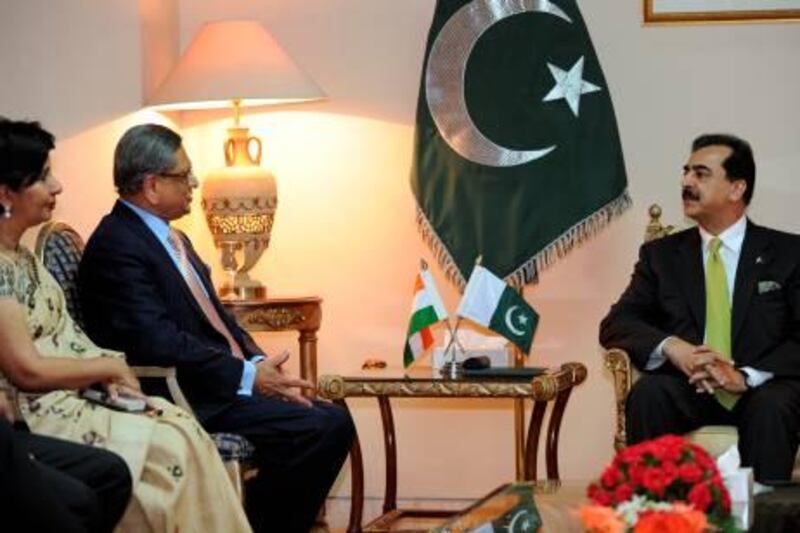ISLAMABAD // Pakistan's president has accused India of rejecting what he termed peace overtures made earlier this year, a sign of how far apart the neighbouring countries remain two years after relations crumbled in the wake of the Mumbai terror attacks.
Asif Ali Zardari made the comments late on Sunday just hours after Barack Obama, the US president, urged the two nations to resolve their differences through dialogue. Mr Obama was speaking to students in Mumbai during the second day of a four-day visit to India.
Better ties between India and Pakistan would help Washington in the war in Afghanistan because it would allow Islamabad to shift troops to its western border to fight militants there.
Moreover, Pakistan's alleged support for the Taliban in Afghanistan is motivated partly by its fear of Indian influence there.
Pakistan and India have fought three wars since 1947, two over conflicting claims surrounding the Kashmir region.
India accuses Pakistan's intelligence agencies of supporting militants who carry out attacks in India, including the November 2008 attacks in Mumbai that killed 166. Tensions between the two nations rose after those attacks and a slow-moving peace process was put on hold.
Pakistan wants to resume talks that include the Kashmir issue, but India says it has not done enough to punish the perpetrators of the Mumbai attacks or ensure there will not be a repeat.
Islamabad invited India's foreign minister for talks in July in Islamabad, but they achieved little except public recriminations on both sides.
"The democratic civil government went out of the way in our peace overtures toward India," Mr Zardari said in a speech to a South Asian journalist association, a copy of which was released on Monday. "It would have been most helpful if our initiatives had been welcomed and responded to in a positive manner".
Mr Zardari said Pakistan was cooperating in bringing to justice those behind militant attacks.
Pakistan has arrested seven people in connection with the Mumbai attacks, but their trials have not properly begun yet.
Pakistan's powerful army and spy agencies - which operate largely out of the control of Zardari's government - have for years treated militants who attack India as allies, not enemies. Analysts say they have not fully severed their ties with such groups.
The United States has to play a delicate balancing act in its relations with the two nations. It cannot upset India, a growing economic and democratic giant, and must also strengthen ties with Pakistan, which it needs to stabilise Afghanistan.
* With additional reporting by Agence France-Presse





